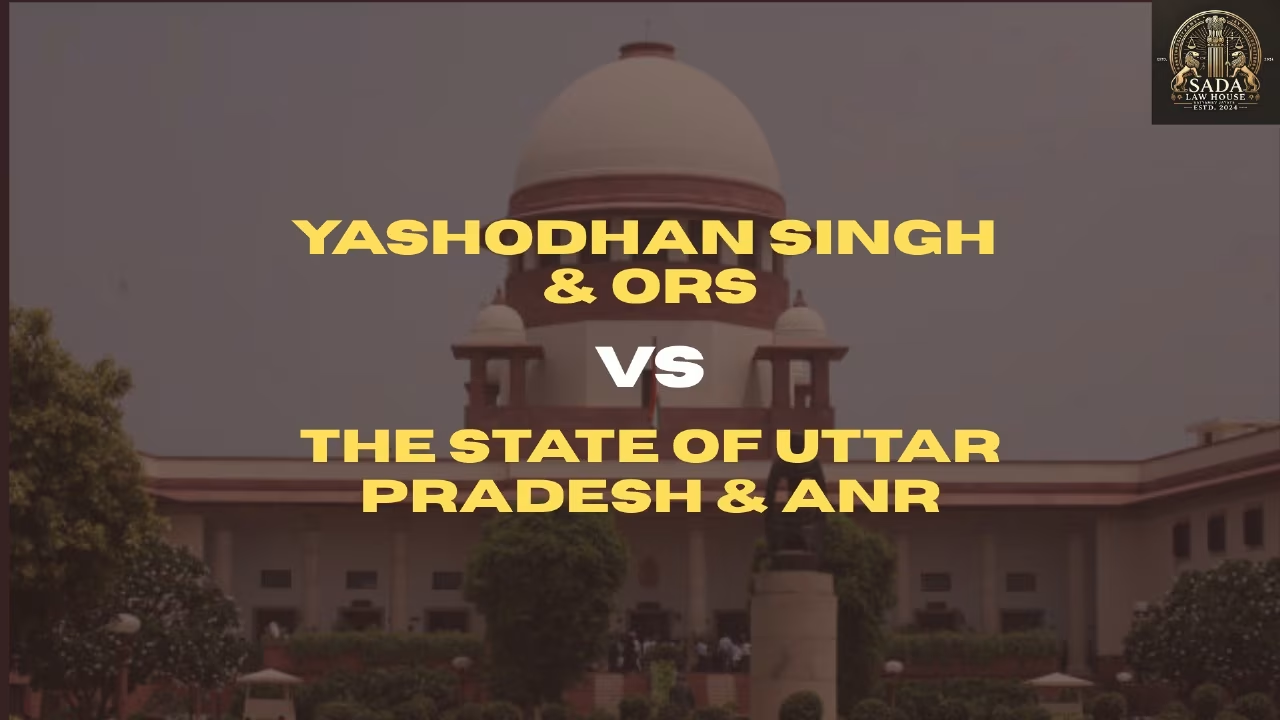Opportunity of Hearing Before Summoning Under Section 319 CrPC: Supreme Court’s Ruling in Yashodhan Singh & Ors. v. State of Uttar Pradesh
- REHA BHARGAV
- Sep 23, 2025

The Supreme Court of India in Yashodhan Singh v. State of Uttar Pradesh (July 18, 2023) held that an opportunity of hearing is mandatory before summoning additional accused under Section 319 CrPC. Learn about facts, issues, and judgment.
Introduction
The case of Yashodhan Singh & Others v. State of Uttar Pradesh & Anr., decided by the Supreme Court of India on July 18, 2023, examined the scope of Section 319 of the Criminal Procedure Code (CrPC).
The appellants, not named in the original chargesheet, were later summoned by the trial court based on witness statements. They challenged this order, arguing that they were denied an opportunity of hearing before being added as accused.
The judgment, delivered by Justice B.V. Nagarathna and Justice Ujjal Bhuyan, addressed important questions of fair trial rights, due process, and natural justice in criminal proceedings.
Facts of the Case
Criminal proceedings began against certain accused persons under the Indian Penal Code (IPC) after a violent incident.
During trial, prosecution witnesses made statements implicating Yashodhan Singh and others who were not named in the original FIR or chargesheet.
The trial court invoked Section 319 CrPC and summoned them as additional accused.
The appellants argued that this was done without notice or hearing, violating principles of natural justice.
Issue Before the Court
Whether a person can be summoned as an accused under Section 319 CrPC without being given an opportunity of hearing, and whether such omission violates the right to a fair trial under Article 21 of the Constitution of India?
Petitioners’ Arguments
The appellants argued:
The summoning order violated natural justice since they were not heard before being added as accused.
Witness statements against them were vague and insufficient to establish a prima facie case.
Being added as accused after the trial began caused serious prejudice to their defense.
Section 319 CrPC must be interpreted consistently with due process under Article 21.
Judicial discretion under this provision should be exercised cautiously and only after notice and hearing.
Respondents’ Arguments
The State of Uttar Pradesh argued:
Section 319 empowers courts to summon anyone appearing guilty, even if not named in the FIR or chargesheet.
The trial court acted on sworn testimonies from prosecution witnesses, which provided sufficient basis.
The law does not expressly require pre-summoning notice.
Once summoned, accused persons have ample opportunity to defend themselves during trial.
The provision ensures that all real culprits are brought to justice and prevents miscarriage of justice.
Judgment of the Supreme Court
The Supreme Court, in its July 18, 2023 ruling, sided with the appellants and set aside the trial court’s summoning order.
Key observations:
Principles of natural justice apply at the summoning stage under Section 319 CrPC.
An opportunity of hearing must be given before summoning someone as an accused.
Though Section 319 does not expressly require notice, it must be read into the provision to protect due process.
Summoning additional accused carries serious legal consequences and must be based on strong, cogent evidence, not vague statements.
The Court quashed the summoning order and reinforced that procedural safeguards cannot be bypassed.
Conclusion
The judgment underscores that fair trial and natural justice are non-negotiable rights under Article 21.
By ruling that an opportunity of hearing is mandatory before summoning under Section 319 CrPC, the Supreme Court set a precedent protecting individuals from arbitrary inclusion as accused during trial.
This case reaffirms that judicial power must be exercised cautiously, ensuring that justice is not only done but also seen to be done in a fair and lawful manner.
Case Laws






